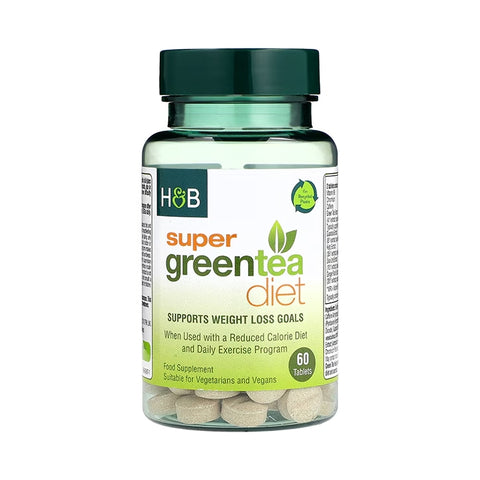Nutrition and psychoemotional well-being: the impact of a balanced diet
Vincent Carrié
How a balanced diet impacts your psycho-emotional well-being
In the constant pursuit of a healthy life, we often focus on physical exercise and diets to keep our body in shape. However, it is essential to remember that mental and emotional health also play a vital role in our overall well-being. A balanced diet not only impacts our physical appearance, but also greatly influences our psycho-emotional state. In this article, we will explore how the foods we eat can have a profound effect on our mental and emotional health.
The connection between nutrition and mental health
Recent research has revealed a deep interconnection between what we eat and how we feel emotionally. The foods we choose can directly influence our brain chemistry, affecting our emotions and stress levels. A diet rich in essential nutrients can have positive effects on our mood and general well-being.
Studies show that a balanced diet, which includes a variety of essential nutrients, can positively impact the production of neurotransmitters related to mood regulation, such as serotonin. Known as "the happiness molecule," serotonin plays a vital role in emotional balance. Eating foods rich in tryptophan, an amino acid precursor to serotonin, can promote an improvement in mood and a general feeling of well-being.
Key nutrients for mental health
Some specific nutrients play a crucial role in regulating our psycho-emotional state:
Omega-3 and its impact on well-being
Omega-3 fatty acids, found in foods such as salmon, walnuts and chia seeds, have been the subject of numerous studies in relation to mental health. These essential fatty acids contribute to the health of brain cells and have been shown to have positive effects in reducing depression and anxiety.
The importance of tryptophan and serotonin
Serotonin, known as the "happiness hormone", plays a vital role in our mood. Tryptophan, an amino acid found in foods such as turkey, dairy products, and bananas, acts as a precursor to serotonin. A diet that includes sources of tryptophan can contribute to healthier serotonin levels, thus improving our emotional well-being.
The influence of the intestinal microbiota on psychoemotional well-being
In addition to the nutrients mentioned, mental health is also influenced by the intestinal microbiota: the set of microorganisms that live in our digestive tract. Communication between the gut and the brain, known as the gut-brain axis, is increasingly recognized as a crucial factor in regulating our emotions and mood.
The foods we consume can have a significant impact on the composition and diversity of the intestinal microbiota. A diet rich in fiber, found in fruits, vegetables and whole grains, can encourage the growth of beneficial bacteria in the intestine. These bacteria can produce bioactive compounds that influence the production of neurotransmitters related to emotional well-being, such as serotonin and GABA.
In addition, the gut microbiota also plays a role in the immune system response and inflammation. Chronic inflammation has been linked to psychological disorders such as depression and anxiety. A balanced diet that promotes a healthy gut microbiota can help maintain a healthy immune system and reduce inflammation, which in turn benefits our mental health.
Supplements to improve mental health
In certain cases, it may be difficult to obtain all essential nutrients from the daily diet. Supplements, such as omega-3, may be an option to complement the intake of nutrients beneficial for mental health.
Importance of Nutritional Balance
Beyond the intake of individual nutrients, it is crucial to maintain a proper balance in our diet. Avoiding extremes, such as excessive consumption of refined sugars or saturated fats, can help maintain stable energy levels and better emotional health. Opting for a variety of fresh and natural foods ensures a balanced intake of essential nutrients.
Tips to improve your psycho-emotional well-being through diet
Here are some guidelines to incorporate a balanced diet that benefits your mental and emotional health:
- Increase your intake of antioxidant-rich fruits and vegetables to support brain function and reduce inflammation.
- Include lean protein sources, such as fish and legumes, to maintain a balance of essential amino acids.
- Include healthy fats, like avocados and nuts, for a healthy brain and better emotional regulation.
- Reduce the consumption of processed foods and refined sugars that can contribute to sudden changes in mood.
Integrating diet into daily life
Adopting a balanced diet doesn't have to be overwhelming. Small changes in our daily routine can make a difference. Planning meals in advance, opting for healthy snacks, and reducing consumption of ultra-processed foods are simple but effective steps. In addition, it is essential to listen to our body and its hunger and satiety signals.
Conclusion
The relationship between a balanced diet and our psycho-emotional state is undeniable. From specific nutrients to the influence of gut microbiota, what we eat plays an essential role in our emotions and emotional well-being. By adopting a diet that includes a variety of nutritious foods, we can cultivate a more positive mental and emotional state. Together with regular physical activity and self-care practices, a conscious diet becomes a powerful tool to improve our quality of life in all aspects. Adequate nutrition is key to promoting a positive psycho-emotional state and achieving a full life.
Sources:





